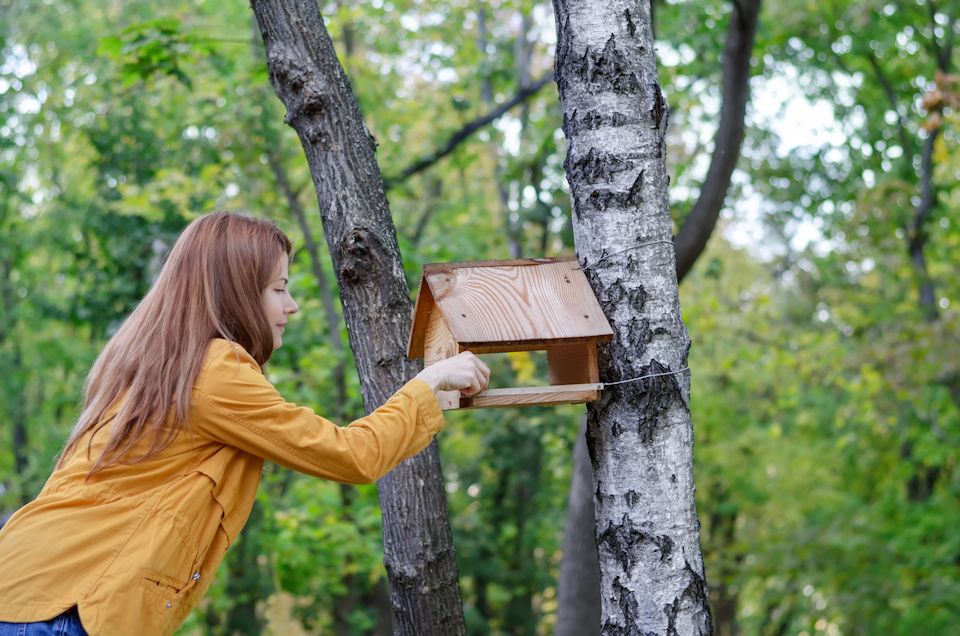Here are a dozen ideas for changing our behaviors for the good of the earth while we engage in physical distancing at home and outdoors.
RYAN DUNN
Rethink Church
People of faith have a responsibility to care for the natural environment. We believe that the world was created in love, and humans are commissioned to be stewards of love in the created world.
The 50th anniversary of the first Earth Day was celebrated on April 22, 2020. Earth Day presents an opportunity for us to reflect on how effective we’ve been in caring for the natural world. In 2020, as we observe social distancing, we’re challenged to creatively think of ways we engage in caring for the environment. Many of us are moving about less, meaning we do not contribute as many pollutants from commuting. Earth Day was founded to highlight the environmental benefits of changing some of our behaviors.
The following are 12 ideas for changing our behaviors for the good of the environment while we engage in social distancing.
1) Cut food waste.
See if you can go a week without throwing out any food–either because it expired, it was from table scraps, or it was discarded during preparation. Prepare and cook only for what you will consume.
2) Obsess over water use.
Can you take shorter showers for a week? The average American shower uses 17.2 gallons of water. Can you cut that down? Can you flush your toilet less? It is OK to let some materials “mellow” until the next use. See how much less water you can use during this time.
3) Learn about discarded plastics.
Many of the products we consume come packaged in plastics. What happens to the plastic packaging we throw away? Research how to best dispose of your plastics and then share your findings online.
4) Opt-in to paperless systems.
Reduce paper usage by contacting your billing agencies and banks and opt to go paperless. You can further reduce paper usage (and, often, some money) by transferring magazine or newspaper subscriptions to electronic editions.
5) Assess your home for energy leakage.
Can you see sunlight coming in from around your exterior doors? If so, it is time to put in some new weather stripping and stop some energy from leaking out. Also, check and see that windows are properly sealed.
6) Audit your diet.
Certain products–especially palm oil, coffee, and cocoa–contribute to deforestation. Check and see if these products are part of your diet and, if so, the products you’re using are killing trees. Replace them with products sourced in a more ecologically-responsible manner.
7) Pick up birding.
Cultivate a greater appreciation for the natural world by seeing what bird species are hanging around your neighborhood and community. Do some more research on threatened species in your area and what factors contribute to their struggles.
8) Ditch the paper products.
Reduce the amount of paper being consumed by using cloth rags instead of paper towels, cloth napkins instead of paper.
9) Buy local.
Local food producers are still in action. Do some research on how you can support them. All those vendors who were setting up at now-shuttered farmers’ markets will appreciate some business. How can you support them?
10) Do recycling right.
Many of us recycle without a full awareness of whether the materials we’re putting in the bins are actually recyclable or not. Check with your local waste managers and see what your community will and will not recycle. Share your discoveries.
11) Start a home composting program.
It doesn’t take a complicated system to start composting. In fact, this video makes putting together a D-I-Y indoor composting bin look simple.
12) Research an ecological organization to support.
Find an ecological organization doing work you can get behind, then get behind them. See what kind of assistance you can offer even now. Once you’ve found something you care about, share online why the organization appeals to you, and encourage others to find an organization to support.
Last Updated on April 22, 2020

